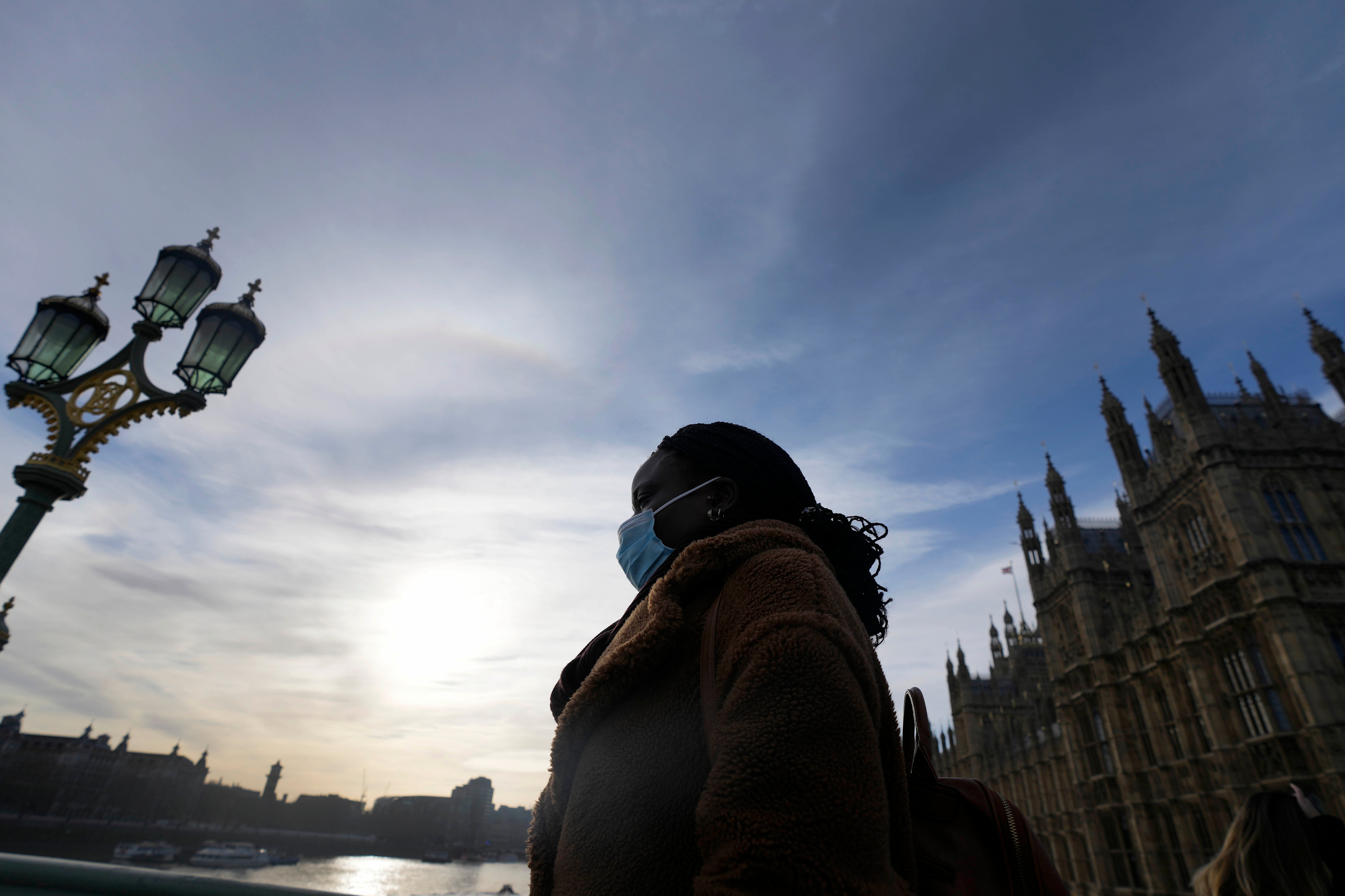UK scientists urge more restrictions to fight omicron surge
British scientists are warning that the government may need to introduce tougher restrictions to slow the growth of the omicron coronavirus variant

Your support helps us to tell the story
From reproductive rights to climate change to Big Tech, The Independent is on the ground when the story is developing. Whether it's investigating the financials of Elon Musk's pro-Trump PAC or producing our latest documentary, 'The A Word', which shines a light on the American women fighting for reproductive rights, we know how important it is to parse out the facts from the messaging.
At such a critical moment in US history, we need reporters on the ground. Your donation allows us to keep sending journalists to speak to both sides of the story.
The Independent is trusted by Americans across the entire political spectrum. And unlike many other quality news outlets, we choose not to lock Americans out of our reporting and analysis with paywalls. We believe quality journalism should be available to everyone, paid for by those who can afford it.
Your support makes all the difference.The British government may need to introduce tougher restrictions to slow the growth of the omicron variant and prevent a new surge in COVID-19 hospitalizations and deaths, British scientists said Saturday.
U.K. health officials say omicron is spreading much more quickly than the delta strain and is likely to replace it and become the dominant variant in Britain within days. The U.K. recorded 58,194 coronavirus cases on Friday, the highest number since January, though what portion were the omicron variant is unclear.
Concerns about the new variant led Prime Minister Boris Johnson’s Conservative government to reintroduce restrictions that were lifted almost six months ago. Masks must be worn in most indoor settings, vaccine certificates must be shown to enter nightclubs and people are being urged to work from home if possible.
Many scientists say that's unlikely to be enough.
Modeling released Saturday by scientists at the London School of Hygiene and Tropical Medicine suggested omicron is likely to cause a large wave of infections by January, and could cause between 25,000 and 75,000 deaths in England in the next five months if no other measures are taken.
The most pessimistic scenario foresees half a million people hospitalized with the virus by the end of April and says daily hospital admissions could be double the previous peak in January 2021. The study by the scientists, who help advise the British government, has not been peer reviewed.
The number of infections will depend on how much the variant escapes protection from vaccines, and how effective booster shots are at bolstering immunity, both of which remain unclear.
Scientists in South Africa where omicron was first identified, say they see signs it may cause less severe disease than delta, but caution that it is too soon to be certain.
“In our most optimistic scenario, the impact of omicron in the early part of 2022 would be reduced with mild control measures such as working from home,” said Rosanna Barnard of the school’s Center for the Mathematical Modelling of Infectious Diseases. “However, our most pessimistic scenario suggests that we may have to endure more stringent restrictions to ensure the (health service) is not overwhelmed.”
Johnson's government says it is not considering tougher measures, but aims to offer everyone 18 and over a booster shot of vaccine by the end of January.
The U.K. Health Security Agency said Friday that both the AstraZeneca and Pfizer vaccines appear less effective in preventing symptomatic infections in people exposed to omicron, though preliminary data show that effectiveness appears to rise to between 70% and 75% after a third vaccine dose.
___
Follow AP’s pandemic coverage at https://apnews.com/hub/coronavirus-pandemic